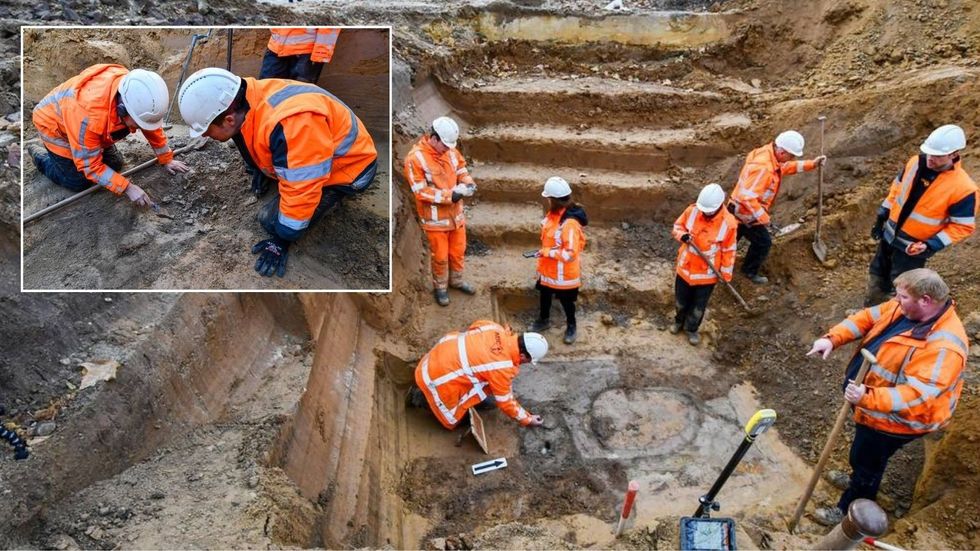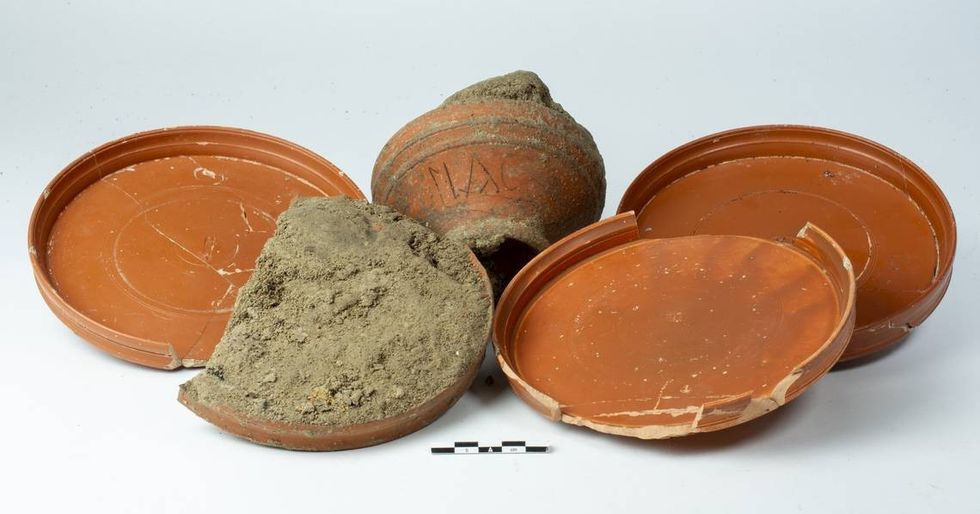Archaeologists have discovered a unique 2,000-year-old Roman soldier’s grave in Heerlen, Netherlands, dating back to around 0AD.
The remarkable find, unearthed last month in the Dutch municipality, represents evidence of Roman habitation in the area during the time of Emperor Augustus.
The grave site has provided researchers with crucial insights into the earliest settlement of Heerlen, which they now date to the Augustan era between 0 and 20 AD.
The soldier was identified as “Flaccus” through the word “Flac” carved into a bowl discovered in the grave.

Archaeologists have discovered a unique 2,000-year-old Roman soldier’s grave in Heerlen, Netherlands, dating back to around 0AD
Municipality of Heerlen
“Today, evidence was found of Roman habitation in the time of Emperor Augustus. A unique discovery that not only teaches us more about our past, but also shows how unique the story of Roman Heerlen is for the Netherlands,” said Jordy Clemens, Heerlen’s council member for culture and heritage.
The grave was discovered during excavations at Raadhuisplein, Heerlen’s town square, which held strategic importance in the ancient Roman settlement of Coriovallum.
The location sat near two significant Roman roads, the Via Belgica and Via Traiana.
Coriovallum was notable for housing the Netherlands’ oldest stone building, a Roman bathhouse built around 40 AD.
LATEST DEVELOPMENTS:
The bathhouse complex included a restaurant and library, serving as a multifunctional meeting place during the Roman period.
Researchers discovered several significant items within the grave, including four plates and a bronze skin scraper.
The pottery items were traced back to ancient Italy, providing confirmation of Flaccus’s identity as a Roman soldier.
This discovery was particularly significant as previous finds of pottery fragments in the region could not definitively prove Roman settlement, as they might have been discarded by travellers.

The latest discovery was particularly significant as previous finds of pottery fragments in the region could not definitively prove Roman settlement, as they might have been discarded by travellers
Municipality of Heerlen
The discovery of Flaccus’s grave marks a groundbreaking moment in Dutch archaeology, being both the oldest Roman grave in Heerlen and the first to bear a name.
“It is a unique find because it is not only the oldest Roman grave in Heerlen but also because no name was known there before,” researchers explained.
The grave provides definitive evidence of Roman settlement in the region during the time of Emperor Augustus, offering new insights into the area’s residential history.